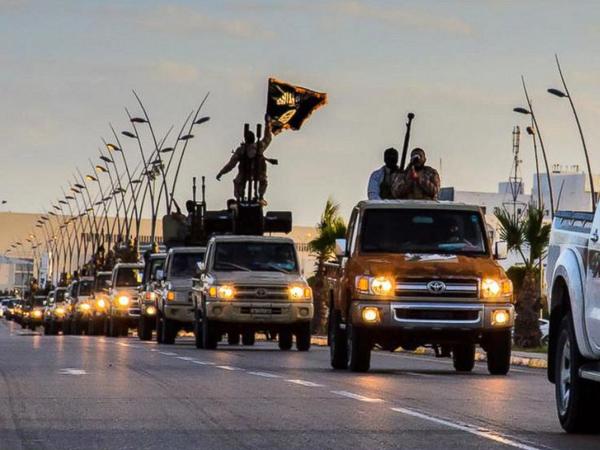IN THE MEDIA
Stepped-up Islamic State terror campaign demands new strategies
December 10, 2015 | Colin Rubenstein

Strategies somewhere between continuing air strikes and a full-scale ground war against the terror group deserve closer scrutiny.
Colin Rubenstein
Sydney Morning Herald – December 10, 2015
The Islamic State-inspired shooting that killed 14 people in California on December 2 was the deadliest terror attack on American soil since 2001 and prompted US President Barack Obama’s first Oval Office address in five years.
It took place against a backdrop of a steady stream of terror attacks of two types – those planned and executed directly by IS, like the Paris attacks on November 13 that killed some 130 people, in contrast to those carried out by IS supporters and sympathisers without direct co-ordination, including the Lindt hostage-taking incident in Sydney just a year ago.
The California attack notwithstanding, the group has apparently shifted tactics directly towards large-scale terrorist attacks against the home front of its perceived enemies, in addition to its territorial war of conquest in Iraq, Syria and Egypt’s Sinai Peninsula.
IS’s Paris attack, it should be recalled, followed the bombing of a Shiite neighbourhood in Beirut on November 12, killing 43, the October 31 Sinai bombing of a Russian passenger plane, killing 224, and a bombing in Ankara on October 10, which left more than 100 people dead.
If organised IS-based terror persists, it would truly be a frightening development. IS has not only proven highly capable of planning and executing complicated terror attacks, but has a large pool of recruits with Western passports who can blend easily into Western societies. It also has a territorial base from which to train terrorists and access to chemical weapons which it has not hesitated to use.
The recent attacks are a reminder that terrorism can never be stopped through purely defensive means. It is therefore encouraging that Obama renewed his vow to destroy IS in his address.
Unfortunately, however, there was little indication from Obama’s address that the US is prepared to meaningfully change its military strategy against IS which Obama himself said after the Paris attack was “right … and we’re going to see it through”.
As Matthew Levitt, director of The Washington Institute’s Stein Program on Counterterrorism and Intelligence and an expert on Islamist terror, tweeted in response to Obama’s address: “What if we’re on the right side of history, but we’re not doing enough to defeat our adversary. Would we still win?”
Critics are concerned that the current US tactics – centred on limited air strikes combined with a few military advisers operating under tight restrictions – even if marginally increased, such as the just announced dispatch of 200 US Special Forces troops, will do relatively little to hamper IS.
As we have seen, while the West’s current military strategies may affect IS’s territorial ambitions, they have little effect on IS’s ability to launch major terror attacks abroad.
Is it true, however, as Obama suggested, that the only other option is a full-scale ground war by Western troops and extended occupation of territory held by IS?
Not at all. Many military analysts have suggested sensible strategies somewhere in the middle between Obama’s two stated options. While these plans vary in scope – some suggest a potent international force of several thousand troops backed by air power working under more viable rules of engagement – they share the incremental goal of delivering morale-destroying battlefield losses to IS while expanding safe havens for an interim government and the training and deployment of soldiers from the liberated zones. These strategies deserve closer scrutiny.
Yet sensible Western strategies are also needed beyond the battlefield.
This includes not blaming all of Islam or moderate Muslims for the acts of IS and other violent Islamists. Offensive proposals such as US presidential hopeful Donald Trump’s plan to temporarily ban all Muslim immigration to the US is not only beyond the pale but plays straight into the hands of IS.
Western strategists must also recognise that when it comes to fighting IS, the enemy of our enemy is not necessarily our friend. This means, in particular, the fact that Russia and Iran have nominally joined the fight against it for the sake of propping up the Assad regime, does not make Damascus, Tehran and Moscow Western allies.
The Assad regime, in its murderous assault on Syria’s Sunni majority, has been IS’s greatest recruiting tool. Any deal with Syrian President Bashar al-Assad and his patrons will therefore only strengthen IS.
Iran continues to be the world’s most significant state sponsor of terror, is vastly more powerful than IS, and is seeking both nuclear weapons and regional hegemony. There is absolutely no sign the regime is moderating in the wake of the nuclear deal signed in July – rather the opposite is occurring. Strengthening Iran while weakening IS will only exchange one bad situation for a potentially far more dangerous one in the medium to long term.
It is also important to recognise that, for all the talk about a diplomatic solution for Syria, the recent attacks have done nothing to improve the dim prospects of any such outcome in the short term.
In the relentless clash between democratic, humanitarian values and the raw, murderous religious chauvinism and expansionist ambitions that epitomise IS, a showdown is looming.
If IS is indeed shifting to using international terrorism as a major weapon in that showdown, neither persisting with current militarily strategies, nor placing our primary hopes on the apparent chimera of a short-term “diplomatic solution” to the Syrian civil war, are likely to adequately address that challenge.
Dr Colin Rubenstein is executive director of Australia/Israel and Jewish Affairs Council, and formerly taught Middle East politics at Monash University.
Read more: http://www.smh.com.au/comment/steppedup-islamic-state-terror-campaign-demands-new-strategies-20151209-gljz4t.html#ixzz3ttO4u5fk
Tags: International Security





